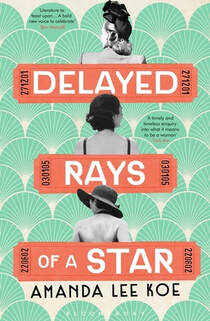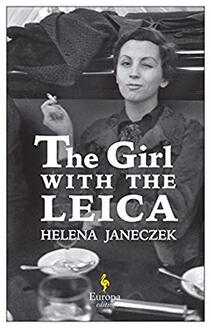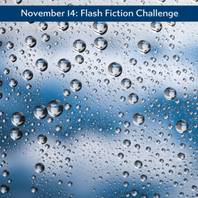Delayed Rays of a Star by Amanda Lee Koe
In her beautifully accomplished debut, Singapore-born Amanda Lee Koe presents the personalities behind the performance, entwined with the politics of prejudice and the murky world beneath the cinema glitter. Each woman is more complex than the stereotype, rising on a mix of talent, luck and self-delusion, and each has more than a nip of the necessary narcissism to pursue an artistic career.
I hadn’t heard of Anna May Wong, Hollywood’s first Chinese movie star, until I read Peter Ho Davies’ The Fortunes. This novel covers similar territory – how she was type-cast as a temptress but racist laws on who may kiss whom debarred her from playing the romantic lead – which I was more than happy to revisit. In fact, it was her story that drew me to Delayed Rays of a Star. Not being overly interested in the golden age of cinema, I enjoyed this novel much more than I expected, for its breadth of perspective and character depth.
In later life, all three women are confronted with the compromises and contradictions of their success. Anna May Wong has herself exploited the oriental stereotype, while bemoaning how others have used it to restrict her career. Leni Riefenstahl insists that Hitler’s support of her filmmaking doesn’t make her a Nazi, but a woman making art in a man’s world at a particular point in time. At least Marlene Dietrich knows she’s a bitch, although some believe she betrayed her birthplace by making herself the darling of the American military during the Second World War.
Overall, the novel explores the price of ambition and how women and people of colour are condemned for their choices more than white men. Another addition to my favourites shelf; thanks to publishers Bloomsbury for my review copy.
The Girl with the Leica by Helena Janeczek translated by Ann Goldstein
Among these is Gerda Taro, a fearless photojournalist, who died on the battlefield and whose funeral took place in Paris on her twenty-seventh birthday, in August 1937. Her story is told from the points of view of two of her former lovers, looking back at that time, one from Italy, the other from New York State, in 1960, and from the perspective of a close female friend a year after Gerda Taro’s death.
The novel takes a broad sweep, encompassing politics, rivalry and professional ambition. Although ordinarily I appreciate a non-linear narrative, I felt as if this was written for those who already knew her story, and often felt lost in time or in place. While it was interesting to visit Berlin, Leipzig, Paris and Rome, I’d have welcomed more time in Spain with the International Brigades. Thanks to Europa editions for my review copy.
I hope I’m not betraying my gender in having made the photojournalist in my short story “Habeas Corpus” a man. You can judge for yourself by reading it in my collection on the theme of identity, Becoming Someone. Or from this taster here:
Generously sharing her learning from her MFA course, Charli Mills points out that premise is not the same as plot, but both these novels are premise-heavy and plot-light. I can’t get away with arguing that the translated novel is poorly written, as it won the prestigious Strega prize. Of course, I’m completely at liberty not to like it but reading as an author pushes me to ask why.
Not only can I not answer that, I’m off on a tangent with another reading imponderable chewed over on annethology now and then: our preferred balance of light and dark. Thinking I know where the boundary lies for me, I’ve been surprised how disturbed I’ve been by some recent reading. It’s unpublished and, although not my genre, I’m highly motivated to read it to provide feedback to someone who has supported my own writing and because, in my not so humble opinion, it’s extremely good. But, right from the start, I found it gruelling and last night it gave me a nightmare! Interestingly, the predominant emotion in my dream wasn’t fear but guilt at wanting to look away.
| So that’s a right hodgepodge of influences on this week’s 99-word story even before we get to the prompt. See what you think of my take on storm windows: |
They buddied up at college, the way chalk buddies up to cheese. Each sharpening her own perspective on the whetstone of the other’s worldview. Zooming in on each other’s flaws and limitations, the better to eliminate their own.
Later, Rose made a decent living peddling soft-fringed portraits for high days and holidays; Storm tailed evil to the ends of the earth. Rose bought a house with double glazing; Storm spread her sleeping bag in foxholes or on dusty floors. The same degree, the same camera, different outcomes: one with pink-tinged lenses, the other opening a window on life’s storms.
























 RSS Feed
RSS Feed





















